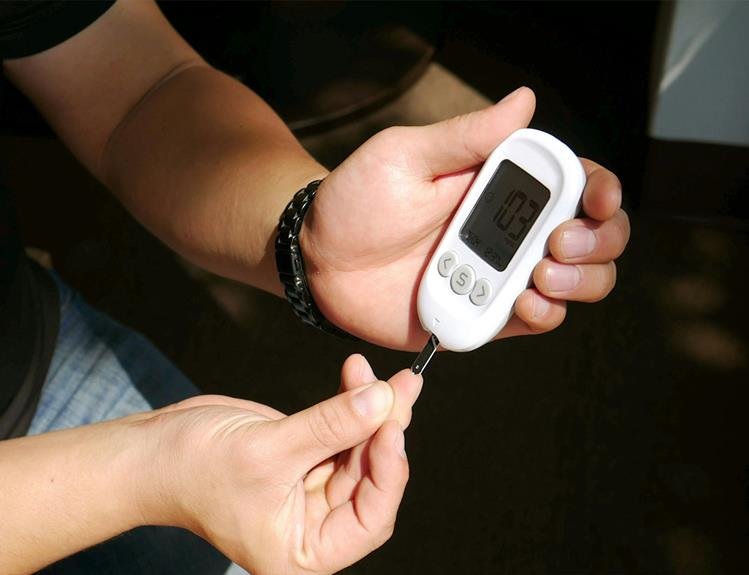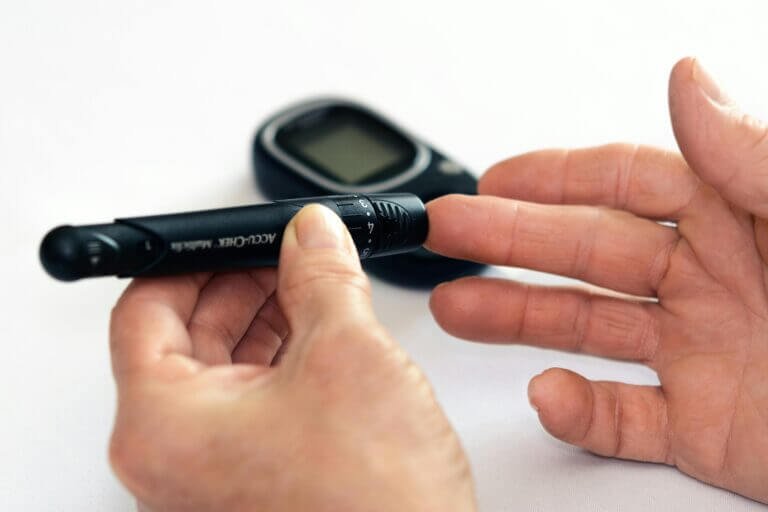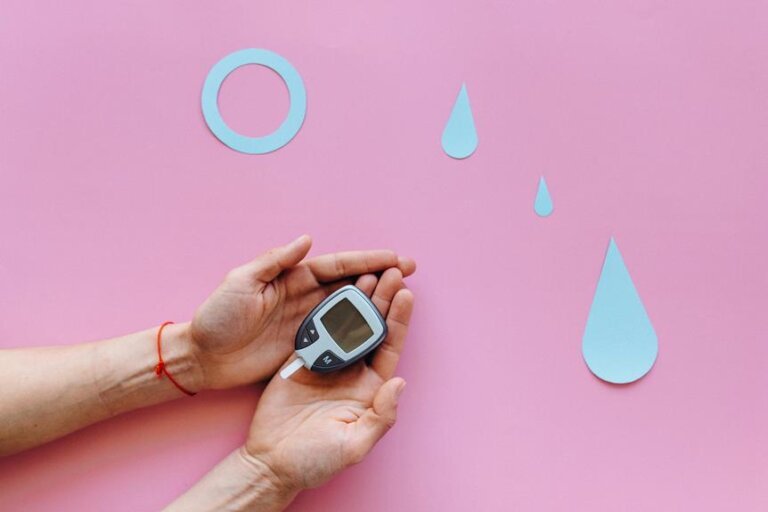how to eliminate diabetes
Diabetes, a chronic disease characterized by high levels of sugar in the blood, affects millions of people worldwide. This condition not only impacts a person’s physical health, but also their emotional well-being and overall quality of life. Despite advances in medical technology and treatments, the number of individuals diagnosed with diabetes continues to rise each year. However, there is hope for those seeking to improve their health and potentially reverse their diabetes diagnosis. In this article, we will explore the most effective and medically-backed methods for getting rid of diabetes. Whether you have been recently diagnosed or have been living with this condition for years, these strategies can help you take control of your health and potentially lead to a diabetes-free life. From lifestyle changes to natural remedies, we will provide you with the tools and knowledge necessary to combat diabetes and improve your overall well-being. Let’s take a step towards a healthier future by learning how to get rid of diabetes.
Prioritize healthy diet and exercise
Maintaining a healthy diet and engaging in regular exercise are essential components in managing and preventing diabetes. By prioritizing a balanced and nutritious diet, individuals can effectively control their blood sugar levels and improve overall health. This involves consuming a variety of fruits, vegetables, whole grains, lean proteins, and healthy fats while limiting the intake of processed foods, sugary beverages, and high-fat snacks. Additionally, incorporating regular physical activity into daily routines can have numerous benefits for those with or at risk of developing diabetes. Exercise can help control weight, improve insulin sensitivity, lower blood sugar levels, and reduce the risk of cardiovascular complications. Whether it’s engaging in cardiovascular exercises, strength training, or simply increasing daily movement, adopting a lifestyle that prioritizes healthy eating and regular exercise is essential for managing diabetes effectively.
Monitor blood sugar levels regularly.
Regularly monitoring blood sugar levels is a vital aspect of managing diabetes and ensuring optimal health. By consistently tracking these levels, individuals can gain valuable insights into how their bodies are responding to various factors such as diet, exercise, stress, and medication. This information allows for timely adjustments to be made to treatment plans, ensuring blood sugar levels are kept within a healthy range. Monitoring blood sugar levels also enables individuals to identify patterns and trends that may indicate the need for further intervention or consultation with a healthcare professional. Overall, maintaining a diligent and consistent practice of monitoring blood sugar levels is crucial in effectively managing diabetes and promoting overall well-being.
Consider insulin therapy if necessary.
In some cases, individuals with diabetes may find that their blood sugar levels are difficult to control through lifestyle modifications alone. When blood sugar levels remain consistently high despite efforts to manage them through diet, exercise, and oral medications, it may be necessary to consider insulin therapy. Insulin is a hormone that helps regulate blood sugar levels by allowing cells in the body to absorb and utilize glucose effectively. It is important to consult with a healthcare professional to determine the appropriate insulin regimen, dosage, and administration method based on individual needs and medical history. Insulin therapy can be a valuable tool in achieving and maintaining optimal blood sugar control for individuals with diabetes.
Quit smoking and limit alcohol.
Another important aspect of managing diabetes is to quit smoking and limit alcohol consumption. Smoking has been shown to increase the risk of cardiovascular complications and can worsen the effects of diabetes on blood vessels. Quitting smoking can significantly improve overall health and reduce the risk of complications. Similarly, excessive alcohol consumption can lead to unstable blood sugar levels and interfere with medication effectiveness. It is recommended to limit alcohol intake and seek guidance from a healthcare professional on safe consumption levels. Making these lifestyle changes can support better diabetes management and contribute to long-term health.
Manage stress effectively.
Managing stress effectively is crucial for individuals with diabetes as it can have a significant impact on blood sugar levels. Chronic stress triggers the release of stress hormones, such as cortisol, which can cause blood sugar spikes and make it difficult to maintain stable glucose levels. To effectively manage stress, it is important to incorporate stress-reducing techniques into daily life. These can include regular exercise, practicing mindfulness or meditation, engaging in hobbies or activities that bring joy, getting enough sleep, and seeking support from friends, family, or support groups. By prioritizing stress management, individuals with diabetes can improve their overall well-being and better control their blood sugar levels.
Consult with a healthcare professional.
To optimize your efforts in managing diabetes and implementing effective strategies, it is vital to consult with a healthcare professional. A healthcare professional, such as a primary care physician or an endocrinologist specializing in diabetes care, can provide personalized guidance and create a comprehensive treatment plan tailored to your specific needs. They have the expertise to assess your current health status, review your medical history, and conduct necessary tests to determine the most appropriate approach to managing your diabetes. Additionally, they can offer valuable insights, educate you about the disease, and address any concerns or questions you may have. Regular consultations with a healthcare professional will ensure that you receive the most up-to-date information, receive proper medical support, and make informed decisions in your journey to effectively manage and potentially overcome diabetes.
Stay consistent with medication regimen.
It is crucial to prioritize staying consistent with your medication regimen when managing diabetes. Consistency plays a significant role in maintaining stable blood sugar levels and preventing complications associated with the disease. Make sure to carefully follow the instructions provided by your healthcare professional regarding medication dosage and timing. Set reminders or establish a routine to help you remember to take your medications as prescribed. It is important to understand that medication alone is not a cure for diabetes, but it is a vital component of an overall treatment plan. By staying consistent with your medication, you are taking proactive steps towards effectively managing your diabetes and promoting your long-term health.
Educate yourself on diabetes management.
To effectively manage diabetes, it is essential to educate yourself about the disease and its management techniques. Gain a comprehensive understanding of the different types of diabetes, their causes, and the impact they have on your body. Familiarize yourself with the various treatment options available, such as medication, insulin therapy, and lifestyle modifications. Stay updated on the latest research and advancements in diabetes management to make informed decisions about your health. Learn how to monitor your blood sugar levels accurately and interpret the results, enabling you to make necessary adjustments to your treatment plan. By actively seeking knowledge and staying informed, you empower yourself to make the best choices for managing your diabetes and maintaining optimal health.
In conclusion, managing diabetes requires a multifaceted approach that includes a healthy diet, regular exercise, monitoring blood sugar levels, and potentially medication. It is important to work closely with a healthcare team to create an individualized plan that works best for you. With dedication and commitment, it is possible to effectively manage diabetes and improve overall health. Remember to prioritize self-care and take control of your health to live a fulfilling life with diabetes.
FAQ
What are some lifestyle changes that can help manage or even reverse diabetes?
Some lifestyle changes that can help manage or reverse diabetes include maintaining a healthy diet rich in fruits, vegetables, whole grains, and lean protein, regular exercise to improve blood sugar control, managing stress levels, getting enough sleep, and monitoring blood sugar levels regularly. Additionally, avoiding smoking and excessive alcohol consumption can also aid in managing diabetes. Consulting with healthcare professionals and following their recommendations is crucial in developing a personalized plan to effectively manage or even reverse diabetes.
Are there any natural remedies or supplements that can help lower blood sugar levels in individuals with diabetes?
Some natural remedies and supplements that may help lower blood sugar levels in individuals with diabetes include cinnamon, chromium, alpha-lipoic acid, magnesium, and bitter melon. However, it is important to consult with a healthcare provider before using any supplements, as they may interact with medications or have adverse effects. Additionally, these supplements should not replace traditional diabetes management strategies, such as medication, diet, and exercise.
How important is exercise in managing diabetes, and what types of physical activities are most beneficial?
Exercise is crucial in managing diabetes as it helps control blood sugar levels, improves insulin sensitivity, and promotes overall health. The most beneficial types of physical activities for diabetes management include aerobic exercises like walking, cycling, swimming, or jogging, as they help lower blood sugar levels and improve cardiovascular health. Strength training exercises are also beneficial for building muscle mass, which can help with blood sugar control and insulin sensitivity. It is important to consult with a healthcare provider before starting any exercise routine to ensure safety and effectiveness.
What role does diet play in managing diabetes, and are there specific foods that should be avoided or included in a diabetic diet?
Diet plays a crucial role in managing diabetes by controlling blood sugar levels. A balanced diet should include whole grains, lean proteins, fruits, vegetables, and healthy fats. Foods high in added sugars, saturated fats, and refined carbohydrates should be limited, while portion control and regular meals are essential. Specific foods to avoid include sugary beverages, processed snacks, and foods high in sodium. Foods to include are leafy greens, whole grains, berries, fish, nuts, and seeds. Maintaining a healthy diet helps in managing diabetes and overall well-being.
Are there any new or experimental treatments for diabetes that show promise in helping individuals get rid of the disease?
Several new treatments for diabetes, such as SGLT2 inhibitors, GLP-1 receptor agonists, and closed-loop insulin delivery systems, have shown promising results in helping individuals manage their condition more effectively. While these treatments may not cure diabetes, they can help individuals better control their blood sugar levels and reduce the risk of complications associated with the disease. Additionally, ongoing research into stem cell therapy and artificial pancreas technology holds potential for more advanced treatments in the future. It is important for individuals with diabetes to work closely with healthcare providers to explore the most suitable treatment options for their unique needs.





